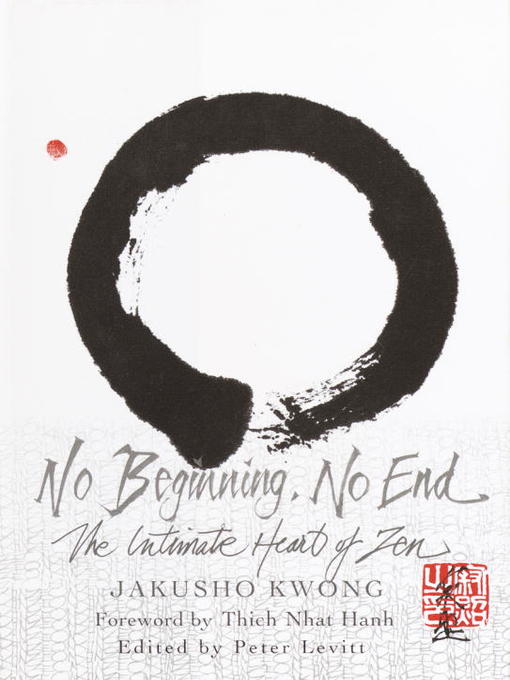
No Beginning, No End
The Intimate Heart of Zen
کتاب های مرتبط
- اطلاعات
- نقد و بررسی
- دیدگاه کاربران
نقد و بررسی

February 10, 2003
The "Big Mind" that Zen Buddhist master Shunryu Suzuki Roshi so poetically described in his classic Zen Mind, Beginner's Mind
shines throughout this collection of talks by Kwong, a disciple and authorized successor of Suzuki's. Appropriately for someone erasing the usual dualistic lines that separate self and other, Kwong's voice is strikingly reminiscent of his teacher's, from the traditional stories and poems he cites to the same central figures of speech and simple diction he uses. The book is also organized like Zen Mind
into three parts with quotes pulled out to head each chapter. It even includes 10 of Kwong's calligraphic illustrations, while Zen Mind
opens with calligraphy facing its title page. Unlike his teacher, however, the California-born Kwong speaks the language of Zen with an American accent. He is intimately familiar with the American lexicon of words and values, which gives him direct experience—important in Zen—to bring to the cultural meeting of modern American and Japanese Zen minds. He uses "living words"—concrete nouns and simple examples from everyday observation or experience—rather than abstract concepts to make plain and understandable the teasing and logic-confounding contradictions found in Zen. Culled from a lifetime of teaching and studying, the book is persuasive. It is the fruit of a ripened mind, hardened by practice but also softened by the compassionate wisdom drawn from those same long years of experience. (Mar. 11)Forecast:Kwong's connection to the legendary Shunryu Suzuki, and his own reputation as founder of the Sonoma Mountain Zen Center near Santa Rosa, Calif., will help to sell this title. Harmony plans national publicity and a four-city author tour in the Western U.S.

March 1, 2003
Roshi is the founder of the Sonoma Mountain Zen Center near Santa Rosa, CA, and has been a teacher of Zen for more than 30 years. His new guide to Zen spirituality features ten original pieces of calligraphy by Roshi-each one surprising in its freedom and verve. Roshi's reflections on Zen practice have the ring of authenticity: he does nothing to make Zen seem easy or American, and the internal and external disciplines asked of a Zen practitioner are at times disquieting but perhaps suitably so. Recommended for most collections, especially where there is a strong interest in Zen or Eastern religions.
Copyright 2003 Library Journal, LLC Used with permission.

























دیدگاه کاربران